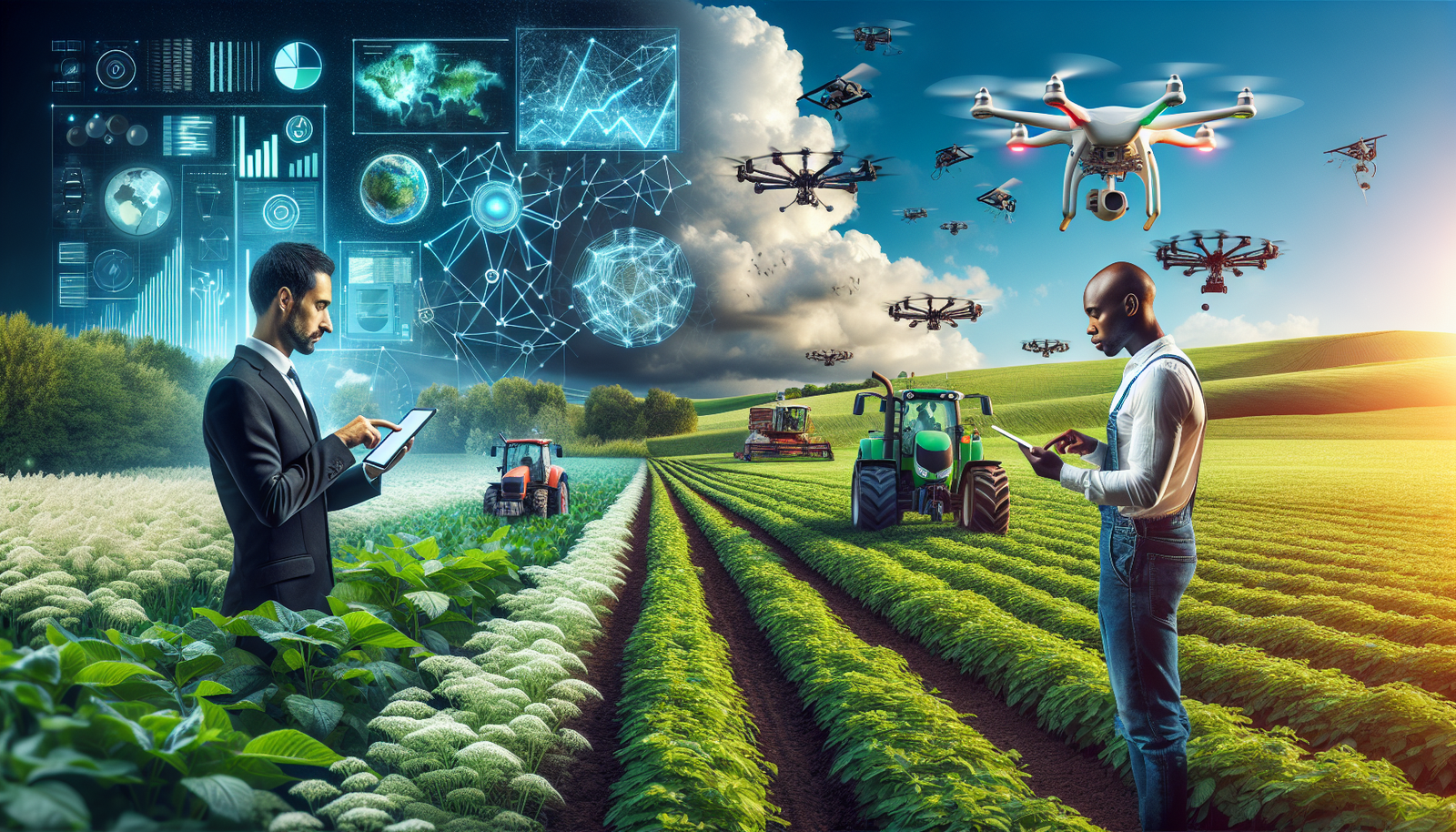Artificial intelligence (AI) is rapidly transforming various industries, and agriculture is no exception. As the global population continues to rise, the demand for efficient and sustainable farming practices has never been greater. The integration of AI technologies in agriculture offers innovative solutions for crop management, pest control, and yield optimization. This article delves into the latest trends and forecasts for the AI in agriculture market, exploring key advancements and their potential impact on food production and sustainability. Join us as we uncover how AI is reshaping the future of farming.
The Growing AI Agriculture Market
The AI agriculture market has blossomed into a vibrant sector, rapidly gaining momentum as farmers and agricultural businesses increasingly turn towards advanced technologies. It’s forecasted that between 2024 and 2032, the market will see substantial growth, aided by technological improvements and the pressing need for sustainable farming solutions. With a projected CAGR (Compound Annual Growth Rate) of around 30%, embracing AI in agriculture could mean gaining a competitive edge in an intense market landscape.
One factor propelling this growth is the necessity for enhanced productivity. Traditional farming methods can be labor-intensive and time-consuming. The introduction of AI enables precision farming, where decisions are made based on vast amounts of data analysis rather than on intuition alone. This helps farmers optimize input use, maintain soil health, and increase crop yields—not only benefiting individual farmers but also contributing to the broader goal of food security.
Key Players in the AI Agriculture Landscape
The AI agriculture sector is a bustling ecosystem teeming with innovation, featuring an array of key players who are pushing the boundaries of what’s possible. Companies like Neyrotex.com, John Deere, and Bayer are at the forefront, developing AI-driven solutions that are redefining old paradigms. Each of these players brings something unique to the table, such as:
- John Deere: Renowned for its advanced machinery, John Deere is leveraging AI to improve equipment functionality with features like automatic steering and data driven performance insights.
- Bayer: With a strong focus on agricultural biotechnology, Bayer is utilizing AI for smarter pest management and crop optimization strategies.
- Neyrotex: This innovative company focuses on developing AI algorithms that enhance predictive analytics in agriculture, helping farmers make informed decisions based on data forecasts.
These players, alongside promising startups, are making waves in this burgeoning market, making agriculture smarter and more efficient.
Innovative Applications of AI in Agriculture
The multifaceted applications of AI in agriculture are nothing short of impressive. Farmers are no longer reliant on outdated practices; instead, they can now embrace cutting-edge technologies that bring a host of advantages:
- Crop Monitoring: AI-powered drones equipped with high-resolution cameras provide a bird’s-eye view of fields, allowing for real-time crop monitoring. These devices can identify potential issues like disease or nutrient deficiencies, giving farmers a head start on problem-solving.
- Soil Management: Through AI analysis, farmers can gauge soil health accurately and determine the right fertilizers to use. This not only boosts crop quality but also fosters sustainable practices by minimizing chemical runoff.
- Predictive Analytics: AI software can analyze long-term climatic data to help farmers plan for adverse weather conditions. By predicting pest invasions or crop crises, AI facilitates proactive measures rather than reactive ones.
- Automated Harvesting: Robotic systems can now harvest crops with remarkable precision, significantly reducing the need for manual labor and ensuring that the produce is harvested at perfect ripeness.
These applications illustrate the transformative potential of AI—changing how we understand and interact with agriculture.
Sustainability and Environmental Impact
In a world grappling with climate change and resource depletion, sustainability has become a cornerstone of modern agriculture. AI contributes to these efforts by enabling practices that are not only productive but also eco-friendly. The ability to monitor water usage, optimize fertilizer application, and reduce pesticide use directly correlates to environmental conservation. Furthermore, implementing AI technologies can significantly reduce carbon emissions from agriculture, as more efficient operations lead to less waste and a smaller ecological footprint.
Challenges and Considerations
While the potential of AI is boundless, there are challenges on the horizon that stakeholders in the agriculture sector must navigate. These may include:
- Data Privacy: With increased reliance on data comes greater responsibility regarding privacy. Farmers need assurance that their data is protected and used ethically.
- Cost Barriers: Although many AI-driven tools promise cost savings in the long run, the initial investment can be daunting for small-scale farmers.
- Training and Education: As with any new technology, the successful implementation of AI in agriculture requires farmer training and education, which must not be overlooked.
In addressing these challenges, it’s essential to foster collaboration between tech companies, agriculture professionals, and government entities to create a secure and supportive ecosystem for AI adoption.
The Future is Bright
The trajectory of AI in agriculture sets the stage for a future that promises greater efficiency and sustainability. By investing in research and development, staying informed on technological advancements, and prioritizing environmental concerns, the agricultural sector can leverage AI to create a world where food security is not just a goal, but a reality.
Conclusion
As we look ahead to 2024 and beyond, the AI agriculture market is poised for dynamic growth and evolution. With formidable players at the helm, innovative applications making waves, and sustainability taking center stage, the farming landscape is changing in ways we once only dreamed about. IT is an exciting time to explore how agricultural AI can redefine not just how we grow food, but also how we interface with the planet.
Have you thought about how these technologies will impact everyday farming practices? The integration of AI innovations presents an unprecedented opportunity to revolutionize agriculture. To further explore this transformative technology, check out Neyrotex.com for some fascinating insights into the future of farming.







